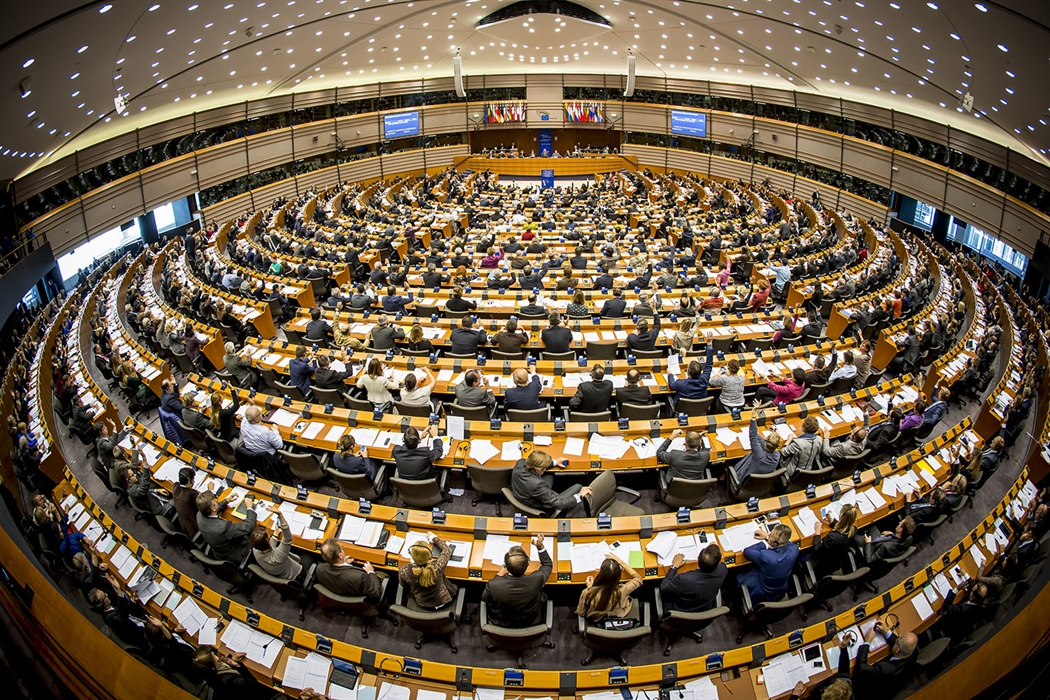According to a new Eurobarometer released today, a majority of Europeans think the situation of the economy is good and are optimistic about the future. Trust in the Union is on the rise and support for the Economic and Monetary Union is at its highest level.
More and more citizens feel they have benefited from key Union policies and two thirds of Europeans advocate a strong EU when it comes to trade. Finally, a majority of Europeans have a positive image of the EU and the proportion thinking that their voice counts has reached its highest level since 2004. These are some of the key results of the latest Standard Eurobarometer conducted between 17 and 28 March and published today.
1. Optimism about the economy and strong support for the euro
Europeans continue to have a positive opinion of the state of the European economy (50%, +2 percentage points since autumn 2017 vs 37%, -2 with a negative view) – this is the highest score since 2007. In 25 Member States, a majority of respondents say that the situation of the European economy is good (up from 23 Member States in autumn 2017). Since autumn 2017, positive perceptions have gained ground in 21 Member States.
For the first time since spring 2007, positive opinions on the situation of the national economy (49%, +1) outweigh negative opinions (47%, -2). Since autumn 2017, the positive economic sentiment has increased in 18 Member States, led by Portugal (43%, +10), Ireland (79%, +7), Finland (77%, +6) and Lithuania (38%, +6). Perceptions between Member States vary. For example, 93% in the Netherlands and in Luxembourg consider the situation of their national economy to be good while only 2% do so in Greece.
Support for the Economic and Monetary Union and for the euro remains at a record high with three-quarters of respondents (74%) in the euro area supporting the EU’s single currency.
2. Trust in the European Union on the rise
Trust in the EU is on the rise at 42% (+1) and at its highest level since autumn 2010. In 15 Member States, a majority of respondents trust the EU. Trust is highest in Lithuania (66%), Portugal and Denmark (both 57%), and Luxembourg and Bulgaria (both 56%). Since autumn 2017, trust in the EU has gained ground in 19 countries, in particular in Portugal (57%, +6 percentage points) and Slovenia (44%, +6), while it has declined in six countries, in particular in Belgium (47%, -6), Hungary (44%, -5) and Slovakia (44%, -4).
40% of Europeans have a positive image of the EU (37% a neutral and only 21% a negative one). This is the case in 15 Member States, with the highest percentages in Ireland (64%), Bulgaria and Portugal (both 56%) and Luxembourg (54%).
Trust in the EU remains higher than trust in national governments or parliaments. 42% of Europeans trust the European Union, while 34% trust their national parliament and their national government.
A majority of Europeans are optimistic about the future of the EU (58%, +1). This is the case in all but two Member States: Greece (where despite a 5 percentage points increase in optimism, 53% are “pessimistic” vs. 42% “optimistic”) and the United Kingdom (48% vs. 43%). Optimism is highest in Ireland (84%), Portugal (71%), Luxembourg (71%), and Malta, Lithuania and Denmark (all three at 70%). At the lower end of the scale are France (48%), and Cyprus and Italy (both 54%).
“Free movement of people, goods and services within the EU” and “Peace among EU Member States” are perceived as the two most positive results of the EU, for 58% and 54% of Europeans respectively. Finally, 70% of Europeans feel they are citizens of the EU. For the first time since spring 2010, this view in shared by a majority in all Member States.
3. Migration and terrorism are Europeans’ top concerns
Immigration features as the top challenge that the Union is currently facing (38%, -1). Terrorism comes second (29%, -9 points), still ahead of the economic situation (18%, +1), the state of Member States’ public finances (17%, +1) and unemployment (14%, +1).
At national level, the main concerns remain unemployment (25%, unchanged), health and social security (23%, +3) and immigration (21%, -1). Health and social security reaches a new high and is now in second place for the first time since spring 2007.
4. Europeans feel the benefits of Union policies and achievements
Compared to spring 2014, more citizens feel that they have benefited from key Union initiatives such as no or fewer border controls when traveling abroad (53%, +1), cheaper calls when using a mobile phone in another EU country (48%, +14), stronger consumer rights when buying products or services in another EU country (37%, +13) or improved air passenger rights (34%, +12).
Finally, there is strong support for the priorities that the Commission has set itself. Free movement is advocated by 82% of the respondents (+1), and a common defence and security policy by 75% (unchanged). For the first time citizens were also asked about their view on EU trade policy with a majority of 71% voicing their support.















